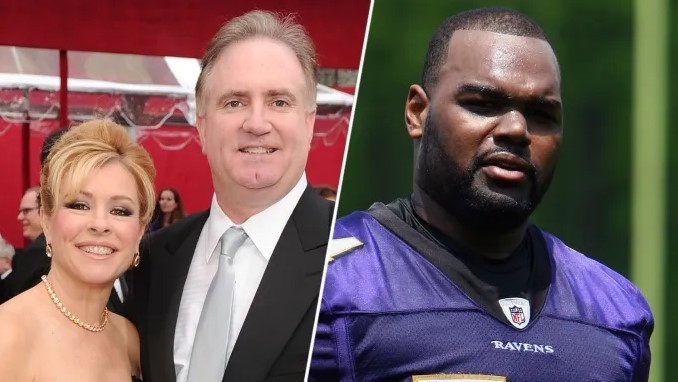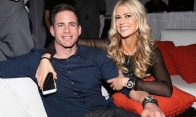Celebrities
Michael Oher Claims Deception: Former NFL Star Alleges Tuohy Family Misled Him, Triggering Court Filing
At its core, the Michael Oher and Tuohy family legal dispute raises fundamental questions about the intersection of personal stories, media representation, and the moral responsibilities inherent in adapting real-life narratives for entertainment. This case is not just about financial compensation or legal technicalities; it shines a spotlight on the ethical dimensions of storytelling and the potential consequences of commodifying someone's life journey.
The entertainment industry's appetite for captivating and inspirational stories often leads to the adaptation of real events into movies, documentaries, or TV shows. While this can amplify the reach of these stories and inspire countless individuals, it can also create a power dynamic where those whose lives are being depicted might not have full agency over their own narratives. The Oher-Tuohy case brings this complex issue to the forefront, prompting us to reevaluate how we approach the representation of real lives on the big screen.
In the era of "true story" adaptations, a deeper discussion about the rights of individuals whose lives are depicted has become increasingly urgent. Are these individuals merely subjects for storytelling, or do they deserve a more active role in shaping how their stories are told and the impact they have? The Oher-Tuohy case underscores the necessity of respecting the autonomy and agency of the individuals whose experiences are being shared and profited from.
Furthermore, this case opens up a dialogue about the broader ethics of media representation. When adapting real events for entertainment purposes, a fine line must be navigated between artistic freedom and factual accuracy. Inaccurate portrayals can have lasting consequences, reinforcing stereotypes or misconceptions about individuals and communities. In the Oher-Tuohy case, the allegations raise questions about the accuracy of Oher's portrayal in the film and the potential consequences of misrepresenting his story.

The concept of compensation also takes center stage. While adaptations can yield substantial profits, it's essential to evaluate who benefits and whether those who lived the experiences receive their fair share. The Oher-Tuohy case spotlights the disparities in financial gains between the Tuohy family and Oher himself. This discrepancy emphasizes the need for transparency, equitable compensation agreements, and ensuring that the individuals who lived the experiences are not left feeling exploited or sidelined in the pursuit of financial success.
Additionally, this legal dispute prompts a reexamination of the legal framework surrounding such agreements. Are the terms and implications of these contracts adequately explained to all parties involved? Are there safeguards in place to protect the rights and well-being of the individuals whose lives are being depicted? This case could lead to reforms in how such contracts are structured and negotiated, with a stronger focus on informed consent, comprehensive understanding, and equitable terms.
As the Oher-Tuohy case unfolds, it serves as a catalyst for discussions not only within the legal realm but also within the entertainment industry, academia, and society at large. It's a reminder that the act of telling someone's story goes beyond a simple transaction; it involves respect, integrity, and a deep commitment to ethical storytelling. As viewers and consumers of media, we're presented with an opportunity to critically engage with the stories we consume, advocating for fairness, representation, and the preservation of individuals' dignity and agency.
In conclusion, the Oher-Tuohy legal dispute invites us to contemplate the responsibilities that come with adapting real-life stories for entertainment purposes. It calls for a more nuanced understanding of the ethical dimensions of storytelling, the importance of accurate representation, and the need for equitable compensation and agency for those whose lives are at the heart of these narratives. As the case continues to unfold, its impact on the intersection of media, ethics, and personal stories will undoubtedly be felt for years to come.
Latest News
At its core, the Michael Oher and Tuohy family legal dispute raises fundamental questions about the intersection of personal stories, media representation, and the moral responsibilities inherent in adapting real-life narratives for entertainment. This case is not just about financial compensation or legal technicalities; it shines a spotlight on the ethical dimensions of storytelling and the potential consequences of commodifying someone's life journey.
The entertainment industry's appetite for captivating and inspirational stories often leads to the adaptation of real events into movies, documentaries, or TV shows. While this can amplify the reach of these stories and inspire countless individuals, it can also create a power dynamic where those whose lives are being depicted might not have full agency over their own narratives. The Oher-Tuohy case brings this complex issue to the forefront, prompting us to reevaluate how we approach the representation of real lives on the big screen.
In the era of "true story" adaptations, a deeper discussion about the rights of individuals whose lives are depicted has become increasingly urgent. Are these individuals merely subjects for storytelling, or do they deserve a more active role in shaping how their stories are told and the impact they have? The Oher-Tuohy case underscores the necessity of respecting the autonomy and agency of the individuals whose experiences are being shared and profited from.
Furthermore, this case opens up a dialogue about the broader ethics of media representation. When adapting real events for entertainment purposes, a fine line must be navigated between artistic freedom and factual accuracy. Inaccurate portrayals can have lasting consequences, reinforcing stereotypes or misconceptions about individuals and communities. In the Oher-Tuohy case, the allegations raise questions about the accuracy of Oher's portrayal in the film and the potential consequences of misrepresenting his story.

The concept of compensation also takes center stage. While adaptations can yield substantial profits, it's essential to evaluate who benefits and whether those who lived the experiences receive their fair share. The Oher-Tuohy case spotlights the disparities in financial gains between the Tuohy family and Oher himself. This discrepancy emphasizes the need for transparency, equitable compensation agreements, and ensuring that the individuals who lived the experiences are not left feeling exploited or sidelined in the pursuit of financial success.
Additionally, this legal dispute prompts a reexamination of the legal framework surrounding such agreements. Are the terms and implications of these contracts adequately explained to all parties involved? Are there safeguards in place to protect the rights and well-being of the individuals whose lives are being depicted? This case could lead to reforms in how such contracts are structured and negotiated, with a stronger focus on informed consent, comprehensive understanding, and equitable terms.
As the Oher-Tuohy case unfolds, it serves as a catalyst for discussions not only within the legal realm but also within the entertainment industry, academia, and society at large. It's a reminder that the act of telling someone's story goes beyond a simple transaction; it involves respect, integrity, and a deep commitment to ethical storytelling. As viewers and consumers of media, we're presented with an opportunity to critically engage with the stories we consume, advocating for fairness, representation, and the preservation of individuals' dignity and agency.
In conclusion, the Oher-Tuohy legal dispute invites us to contemplate the responsibilities that come with adapting real-life stories for entertainment purposes. It calls for a more nuanced understanding of the ethical dimensions of storytelling, the importance of accurate representation, and the need for equitable compensation and agency for those whose lives are at the heart of these narratives. As the case continues to unfold, its impact on the intersection of media, ethics, and personal stories will undoubtedly be felt for years to come.

Jennifer Lopez looks ageless in a towel in no-makeup video

Amanda Holden spanks her derriere and thanks Spanx

Amanda Holden shows off more than bargained as she dances around in her outfit of the day

Meet Harley Cameron, the stunning model who went from a BKFC ring girl to become a pro wrestler and found love

GreenGirlBella, Rocks Emirates Stadium in Painted Home Kit

Amanda Holden calls herself a 'good girl' in white dress with 'cheeky' split

Mum slammed by parents after flashing thong in school run outfit

Lottie Moss makes jaws dropp as she shows off her flawless body

Amanda Holden wears nothing beneath plunging white dress












Comments
Written news comments are in no way https://www.showbizglow.com it does not reflect the opinions and thoughts of. Comments are binding on the person who wrote them.